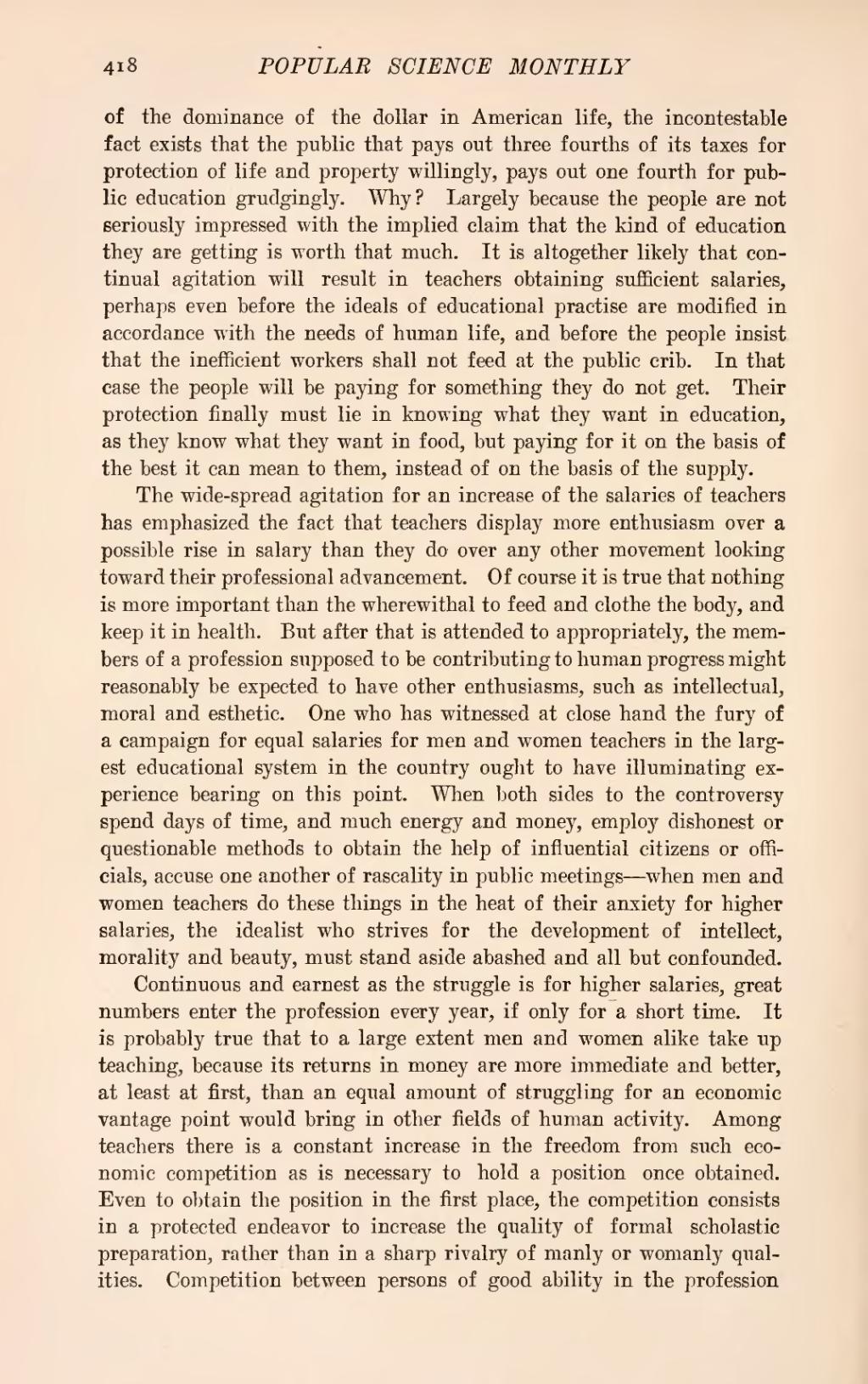of the dominance of the dollar in American life, the incontestable fact exists that the public that pays out three fourths of its taxes for protection of life and property willingly, pays out one fourth for public education grudgingly. Why? Largely because the people are not seriously impressed with the implied claim that the kind of education they are getting is worth that much. It is altogether likely that continual agitation will result in teachers obtaining sufficient salaries, perhaps even before the ideals of educational practise are modified in accordance with the needs of human life, and before the people insist that the inefficient workers shall not feed at the public crib. In that case the people will be paying for something they do not get. Their protection finally must lie in knowing what they want in education, as they know what they want in food, but paying for it on the basis of the best it can mean to them, instead of on the basis of the supply.
The wide-spread agitation for an increase of the salaries of teachers has emphasized the fact that teachers display more enthusiasm over a possible rise in salary than they do over any other movement looking toward their professional advancement. Of course it is true that nothing is more important than the wherewithal to feed and clothe the body, and keep it in health. But after that is attended to appropriately, the members of a profession supposed to be contributing to human progress might reasonably be expected to have other enthusiasms, such as intellectual, moral and esthetic. One who has witnessed at close hand the fury of a campaign for equal salaries for men and women teachers in the largest educational system in the country ought to have illuminating experience bearing on this point. When both sides to the controversy spend days of time, and much energy and money, employ dishonest or questionable methods to obtain the help of influential citizens or officials, accuse one another of rascality in public meetings—when men and women teachers do these things in the heat of their anxiety for higher salaries, the idealist who strives for the development of intellect, morality and beauty, must stand aside abashed and all but confounded.
Continuous and earnest as the struggle is for higher salaries, great numbers enter the profession every year, if only for a short time. It is probably true that to a large extent men and women alike take up teaching, because its returns in money are more immediate and better, at least at first, than an equal amount of struggling for an economic vantage point would bring in other fields of human activity. Among teachers there is a constant increase in the freedom from such economic competition as is necessary to hold a position once obtained. Even to obtain the position in the first place, the competition consists in a protected endeavor to increase the quality of formal scholastic preparation, rather than in a sharp rivalry of manly or womanly qualities. Competition between persons of good ability in the profession
